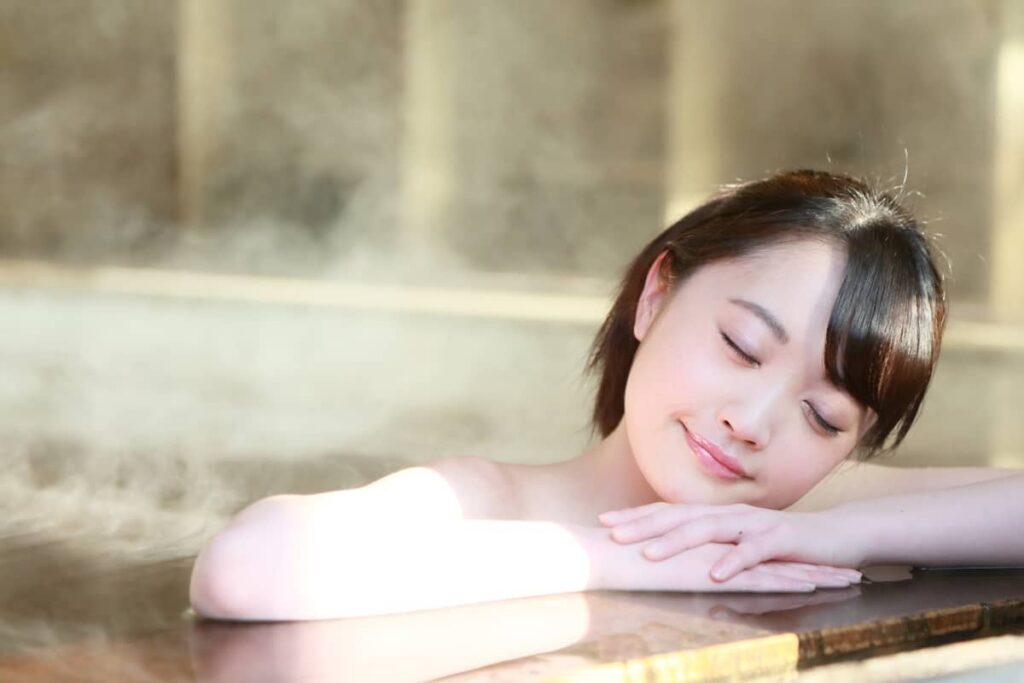[ad_1]
Ever feel guilty about taking a nice, long bath? Of course you haven’t. Now you have even less reason to be. A new study from researchers at Japan’s Tokyo City University reveals that the more you soak, the happier you probably are.
Bathtime = happy time

There’s no denying that Japan loves its bath time. Japan is home to some 2,934 hot springs (onsen), which play an important part in relaxation and are also seen as helping improve one’s health. Those in cities or towns without baths in their apartments can rent soaking time in a nearby bathhouse or sento (銭湯).
But the important question is: does bathing make you happy?
Japanese bathing salts manufacturer Bathclin decided to find out. The company worked with the research team at TCU to understand what relationship taking baths during the week had with overall quality of life (QOL). The study looked at the relationship between bathing as overall happiness, subjective perception of health, and sleep satisfaction, measured on a scale from 0 to 10.
The survey was a web-based research study of 300 people between the ages of 20 and 60. It divided respondents into two groups: the high-frequency bathers, who bathed four or more times a week; and the low-frequency bathers, who bathed 3 or fewer times a week.
The result is sure to sell a lot more bath salts. TCU researchers, led by Hayasaka Shinya, found that, the more baths people took, the happier they tended to be. One of the reasons for the boost in happiness: a meaningful correlation between bath time and spending time with one’s family (e.g., washing with one’s kids).

Furthermore, the high-bathing group were more likely to be free of diagnosed medical conditions. Finally, the study found a significant correlation with frequent bathers and awareness of how hot their baths were and how long they were spending in them. That’s because more frequent bathers are more likely to bathe more frequently in order to enhance elements of their health, such as boosting their immunity or raising their metabolism.
Advertisements
Confusing cause and effect?

There are a lot of qualifications we can add here. One that social media users raised in response to this article is that it could be confusing cause and effect. Are frequent bathers happier because they bathe frequently? Or are they happy because they have more free time – and thus more time to bathe?
Lucky for us, this isn’t the first time a Japanese research team has examined the correlation between bathing and happiness. In 2018, researchers from the ONSEN Medical Research Science Center ran a randomized controlled study on 38 participants to measure the physical and mental effects of bathing, weighing the effects of bathing in 40-degree Celsius water over a two-week period versus showering.
The ONSEN team found a positive effect on fatique, stress, pain, and self-reported health for bathers versus showerers. It also showed improvement in mood and in social functioning scores, and found that bathing also helped reduce anger and tension.
In other words, if you’re not immersion bathing, maybe you should start. And if you are, maybe you should do more of it. In this instance, it seems the people of Japan may know something the rest of us don’t.
Sources
ゆったりバスタイム→頻度が高いほど「幸福度」も高い 健康に影響. Maido na News
浴槽入浴頻度が高いほど幸福度が高く、健康診断の指摘無しの割合が多い傾向. PRTimes
全国の温泉地2934ヵ所 前年比37ヵ所減. Kankokeizai
Physical and Mental Effects of Bathing: A Randomized Intervention Study. National Library of Medicine
[ad_2]
Source link



